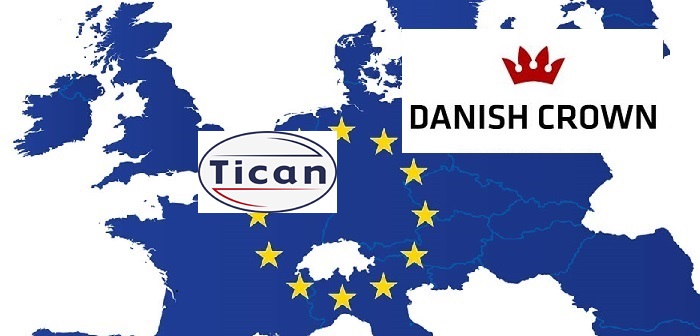The directors of Danish Crown (DC) have admitted defeat in their efforts to merge with fellow Danish processor Tican.
After an intense seven-month review by the Danish competition authorities, the DC board said it had to accept it had not been possible for the merger of Danish Crown and Tican to be approved within the stipulated deadline. This means that the merger application lapses.
“We have declared our willingness to undertake a large number of commitments to the Danish Competition Authority, and even though we have consulted with the authority on what it would take for the merger to go through, the commitments that we have been ready to undertake have not satisfied its requirements,” the president and group CEO of Danish Crown, Kjeld Johannesen, said.
The commitments proposed by Danish Crown involved both the divestment of production facilities and the sale of volumes of Danish raw materials in excess of Tican’s and Danish Crown’s combined sales in Denmark today at a price that didn’t even cover the level of costs, but these commitments were deemed insufficient.
“It has been clear from the outset that a merger between the two companies would be driven to a large extent by a wish to secure the supply of slaughter animals in Denmark – and to a lesser extent by our business plans,” the chairman of the DC board, Erik Bredholt, added. “However, the costs should, of course, not exceed the potential synergies identified during our consideration of the possible merger.”
The processor said that Danish retailers now sold meat products from many different parts of the world. Increasing volumes of foreign meat were being consumed by Danes every year, and today that accounted for more than 20% of total sales in the country. An analysis by a European economist had concluded that the market for pork was already characterised by international competition, also in Denmark. However, the Danish competition authorities saw things differently.
“It is, of course, a great shame, and we have to admit that we were surprised by the very national perspective adopted by the Danish Competition Authority in its review, given that the merger would be one of two export businesses,” Mr Johannesen added. “It’s hard to see how a European single market can develop if all the national competition authorities maintain a local perspective.
“I find it really hard to see how this outcome will ensure greater competition in the marketplace. What is certain is that it will prevent the development of Danish trade and industry”




